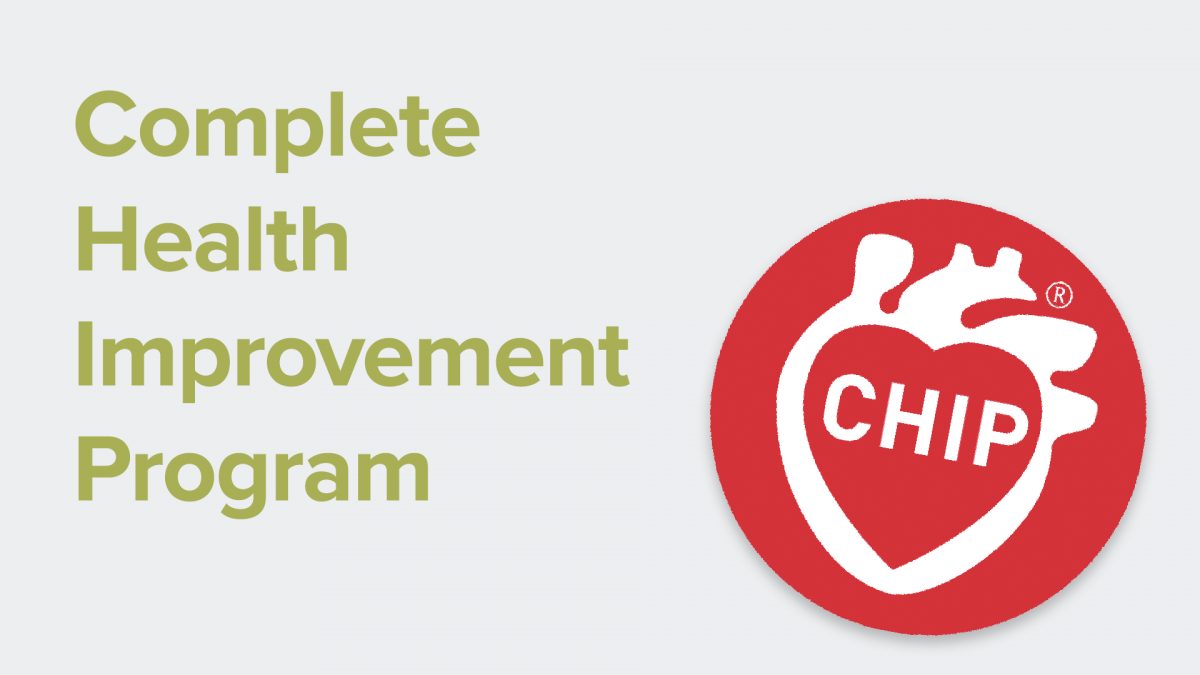
CHIP Program
Hans Diehl, the first director of research at the Pritikin Center (where my beloved Grandma Greger reclaimed her life), developed a volunteer-run education program that could be offered in the community. He called it CHIP, the Coronary Health Improvement Project.
CHIP offers evening classes to teach people how to eat and stay healthy within their home environments, focusing on what CHIP calls the Optimal Diet—one centered around whole plant foods. The program isn’t dogmatic. Instead, it simply encourages people to move along the spectrum toward incorporating more “foods as grown” into their diets.
CHIP doesn’t provide meals—just advice and encouragement, empowering people with knowledge. Within a month on the program, there was an average six-pound weight loss and blood sugars, cholesterol, and blood pressures dropped enough for many participants to drop their antidiabetic, cholesterol-lowering, and blood pressure–lowering medications. And long term? CHIP participants were eating even fewer calories more than a year after finishing the educational program. Many weight-loss programs restrict caloric intake by limiting portion sizes or using meal replacements, which can result in hunger and dissatisfaction, thereby contributing to poor compliance and weight regain. The satiety-promoting, all-you-care-to-eat, plant-based, whole-food dietary approach may therefore be a potent tool for sustainable weight loss.
The CHIP program has since become perhaps the most well-published community-based lifestyle intervention in the medical literature, with studies involving more than five thousand participants. People didn’t just lose weight and improve their physical health; they achieved significant improvements in feelings of stress and sleeping disorders. After four weeks on the program, there was a greater than 50 percent drop in reported insomnia, restless sleeping, easy emotional upset, and feelings of fearfulness or depression. With randomized controlled trials showing both physical and mental health benefits, CHIP’s name was changed from the Coronary Health Improvement Project to the Complete Health Improvement Program.
For substantiation of any statements of fact from the peer-reviewed medical literature, please see the associated videos below.
Image Credit: Image by Bernadette Wurzinger from Pixabay. This image has been modified.
Popular Videos for CHIP Program


What Is the Optimal Diet?
The CHIP program has attempted to take the pioneering lifestyle medicine work of Pritikin and...
Workplace Health and Wellness Programs Put to the Test
Why do so many workplace wellness programs fail to deliver?
A Workplace Wellness Program That Works
What is the return on investment for educating employees about healthy eating and living?
Plant-Based Workplace Intervention
Employee wellness programs may help boost the corporate bottom line.
Plant-Based Diets for Improved Mood and Productivity
The most comprehensive controlled trial of diet and mood finds that a plant-based nutrition program...All Videos for CHIP Program
-

A Workplace Wellness Program That Works
What is the return on investment for educating employees about healthy eating and living?
-

CHIP: The Complete Health Improvement Program
Learn about this community-based education program informing physicians and patients alike about the power of nutrition as medicine.
-

The Weight-Loss Program That Got Better with Time
The most well-published community-based lifestyle intervention in the medical literature is also one of the most effective.
-

What Is the Optimal Diet?
The CHIP program has attempted to take the pioneering lifestyle medicine work of Pritikin and Ornish and spread it into the community.
